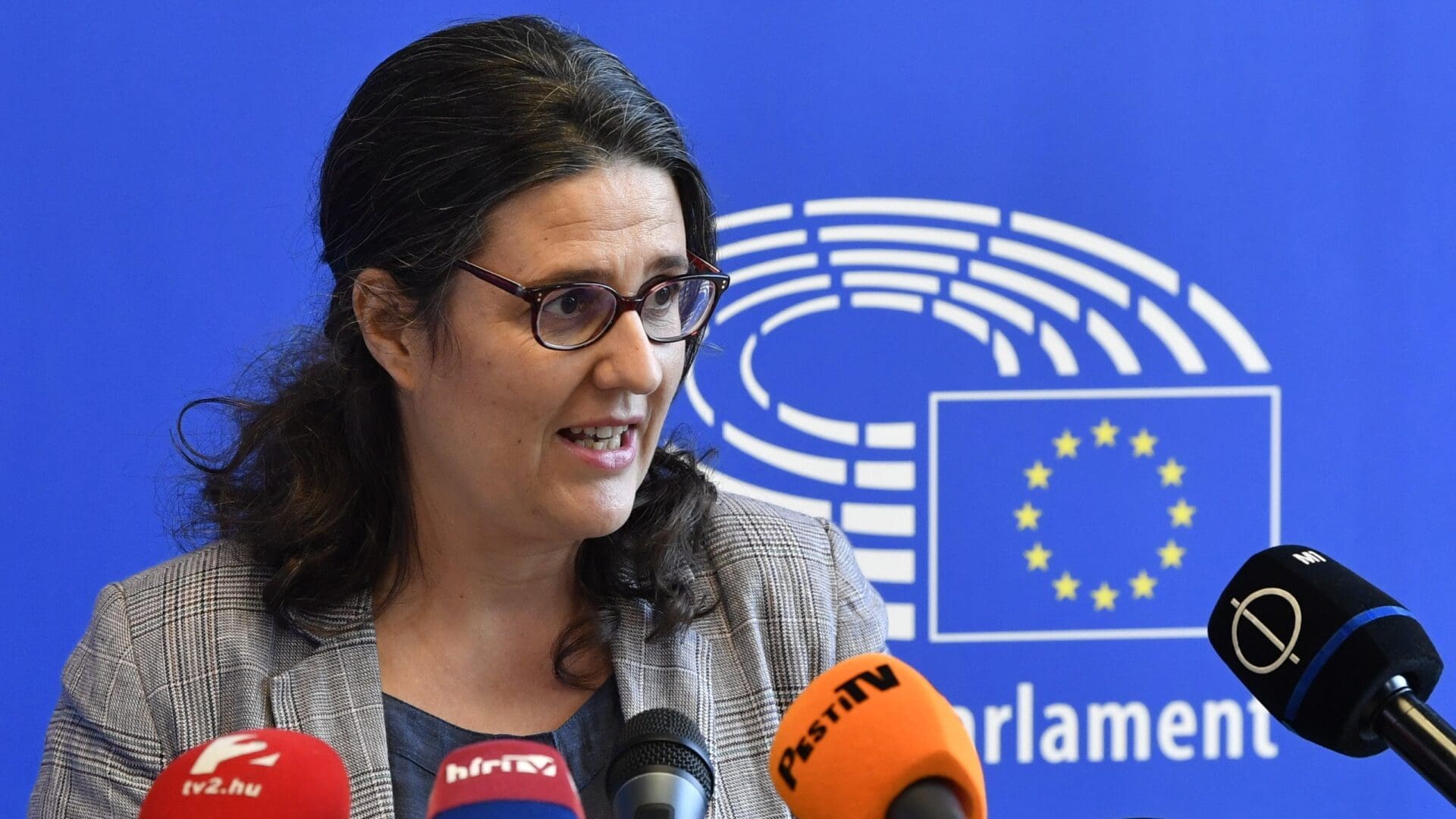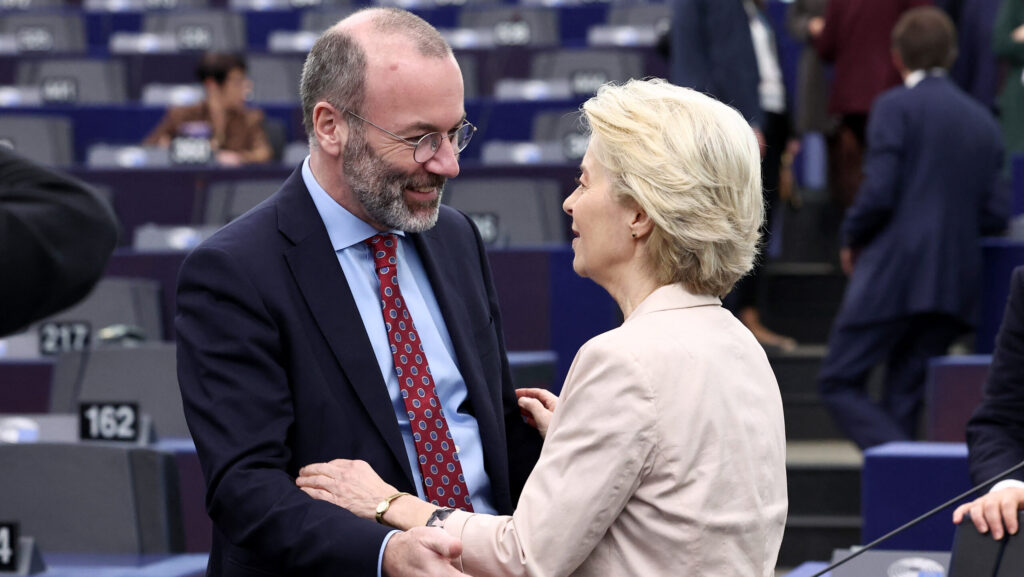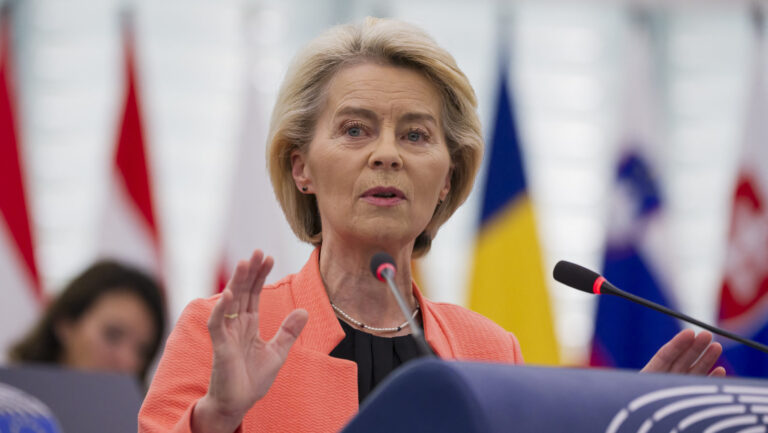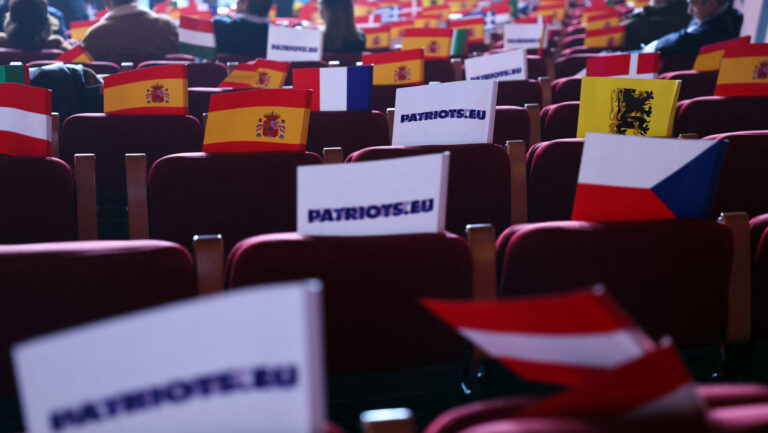The following is a translation of an opinion piece written by Lóránt Sümeghi, Chief Senior Analyst at Századvég Foundation, originally published on Mandiner.hu on 13 February 2023.
Based on the experience of the past days and weeks, the international left that is interested in maintaining and at the same time deepening the Russo–Ukrainian war is no longer keeping up appearances. It seems that even the most absurd defamations and lies made on the international scene are now tolerated tools in the hands of progressive circles that want to limit the political freedom of a consistently pro-peace Hungary at all costs.
After Russia invaded part of Ukraine a year ago under the guise of a ‘special military operation’, our country, with a decisiveness and rapidity unmatched in Europe, realised what the most important and at the same time the most humane position relating to the serious conflict is: Hungary has ever since been emphasising the importance of an immediate ceasefire and peace talks between the parties.
It goes without saying that Hungary’s position, which is unique in the Western world and is specifically pro-peace, has come under heavy criticism on the international stage almost immediately, as the Western political elite, interested in an indirect conflict with Russia, only considered and still considers only those geopolitical and economic commitments desirable that focus on a single outcome: the humiliation of Russia through the victory of Ukraine.
But one year after the outbreak of the war, Hungary—despite the bloodthirsty siren songs and harmful sanctions—
continues to take the same position it took at the beginning of the conflict, namely that human lives must be protected.
All of this is clearly encouraging the policymakers in Brussels and Washington to do everything they can to force the Hungarian government—and thereby the Hungarian people—to participate in the war using increasingly unworthy methods, in many cases even misusing their powers and giving up their honesty.
The comments and statements made by the left-wing US Ambassador to Hungary David Pressman in recent weeks and months serve as blatant examples of overseas pressure. Pressman, ignoring the strict ambassadorial protocol laid down in international law, has deliberately met with various officeholders—even with judges—several times without informing the Hungarian Ministry of Foreign Affairs, which should act as an official intermediary in such cases. Besides, he has also issued false allegations against the Hungarian government in connection with the war, which were clearly intended to advance our country’s involvement in the conflict.
Last autumn, Pressman tried to portray Minister of Foreign Affairs and Trade Péter Szijjártó as pro-Russian by saying: ‘I am concerned when I see missiles flying from Moscow to the playgrounds in Kyiv—and I see Hungary’s Foreign Minister flying to Moscow to hold Facebook Live conferences from Gazprom headquarters.’ Since then, the US Ambassador has recently provoked our country again with the nonsense that ‘political leaders in the government of Hungary often speak of promoting peace, but—from condemning sanctions to embracing Russian “cease-fire” proposals—they continue to push policies endorsed by Putin.’
It is important to highlight that Joe Biden’s man in Budapest is not the only one who seizes every opportunity to involve Hungary in an active conflict between the USA and Russia, even at the cost of lies. Namely, even among the Brussels bureaucrats who show over-compliance to Ukraine to an extent that is difficult to justify,
there is a large number of people who are overtly working to break the Hungarians’ peace-making attitude as soon as possible.
And no matter how often the left protests against such claims both at home and abroad, it is particularly eloquent that the legitimacy of these statements is supported by a series of sentences uttered at a conference at which the opposition Budapest Mayor Gergely Karácsony, and the head of Budapest’s delegation to the European Union Benedek Jávor also participated.
As it turned out, the issue of Hungary and the so-called ‘rule of law’ were unsurprisingly once again on the agenda at the conference entitled Cities for the Rule of Law, organised by the local governments of Budapest and Brussels. However, in addition to the fact that those present—including EU Commissioner for Justice Didier Reynders and Budapest Mayor Gergely Karácsony—once again repeated Brussels’ mantras about the fear for democracy, Gwendoline Delbos-Corfield, a proven anti-Hungarian French Green MEP, also spoke up. She, however, adapted her rhetoric much more to the expectations of pro-war Washington.
According to the French MEP, Hungary poses a specific threat to the European Union as it is well known that ‘Hungarian intelligence services are leaking to Russia and that Hungary is at the forefront of spreading fake news, censoring news and generating fear among the population’. Delbos-Corfield ended her outlandish thoughts by saying that ‘we must learn from the Hungarian case. The European Union must learn to defend itself against attacks from within.’
In addition to the obvious lies, the statements of the MEP who presented a report condemning our country already last September proved to be irresponsible also in a political sense, which was faithfully illustrated by her clarification shortly after the conference, too. In her statement, although quite clumsily, she admitted that she cannot support her claims against the Hungarian government with any factual evidence and said that ‘she expressed herself incorrectly’ as she did not mean systemic leaks with the approval of the services.
Whether it is the left-wing transatlantic or Brussels politicians, the communication pattern we have just seen clearly shows that the members of this political elite
are seriously committed to putting Hungary in a situation that serves the war efforts of a foreign power instead of the interests of the Hungarian people.
However, what these circles often forget is that the legitimacy of the Hungarian government does not come from Washington, nor from Brussels, but from the Hungarian electorate. And last April, the overwhelming majority of Hungarian people voted against the left-wing opposition in favour of the current government party, conscious that it promised to protect Hungary’s peace and security above all—even if the excisemen of the war would have it otherwise.
Click here to read the original article








